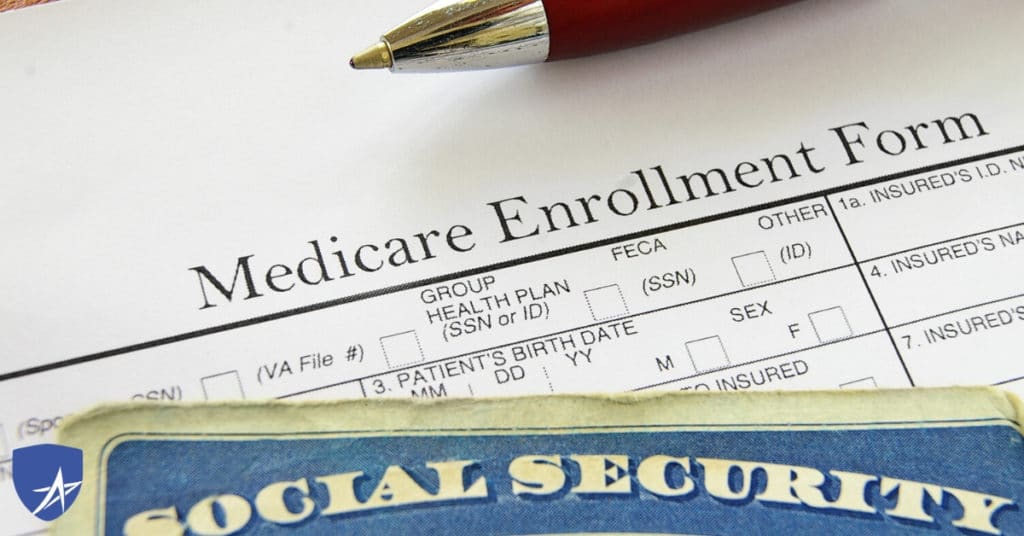As you near retirement or are even in retirement when it comes to your health insurance there is only option Medicare. The question that arises more times than not is if you have to enroll into Medicare?
The answer in the simplest terms is yes you do have to enroll into Medicare.
Believe or not under federal regulations in order to receive your Social Security benefit you must accept Medicare Part A once you are 65 years of age or older, collecting Social Security and are no longer have creditable health insurance through employer or spouse’s employer.
Failure to enroll results in the forfeiture of all Social Security benefits.
Yes, you are reading that correct. If you enrolled into Social Security at say age 62 and at age 65 you do not enroll into Medicare AND you do not have any other creditable health insurance you have to pay back every penny your collected from Social Security on top of losing all future benefits as well.
This can easily be rectified by enrolling into Medicare when possible, but if you have delayed and missed your enrollment window for Medicare you may be subject to a loss of Social Security benefits until you do enroll.
How did this happen?
That answer is a little more involved as this regulation was not challenged until 2005 when an appellant known as J.J.K. filed to terminate their Medicare benefits with the Department of Health and Human Services (HHS).
On July 15, 2009, HHS reached its conclusion by stating “Individuals entitled to monthly benefits which confer eligibility for HI may not waive HI entitlement. The only way to avoid HI entitlement is through withdrawal of the monthly benefit application. Withdrawal requires repayment of all RSDI and HI benefit payments made”.
The decision went further to state “To withdraw from the HI program, an individual must submit written request for withdrawal and must refund any HI benefits paid on his/her behalf.”
This regulation was again challenged in 2011 by three federal employees who argued that with their health benefits through the Federal Employees Health Benefit (FEHB) program there was no need to enroll into Medicare. The case is known as Brian Hall verse Kathleen Sebelius, Secretary of the Department of Health and Human Services.
On March 11, 2011, Judge Rosemary Collyer of the U.S. District for the District of Columbia concluded through examining the law that Congress enacted in 1965 creating the Medicare program that the Plaintiffs by disenrolling from Medicare this act “would be contrary to congressional intent, which was to provide ‘mandatory’ benefits under Medicare Part A for those receiving Social Security Retirement benefits.”
The Plaintiffs then filed for appeal on the federal level on October 13, 2011. The decision by the United States Court of Appeals was not in their favor as it ruled that “Congress could have made entitlement to Medicare Part A benefits depend on an application. But Congress instead opted to make entitlement to Medicare Part A benefits automatic for those who receive Social Security Benefits and are 65 or older”.
In retirement in order to receive your Social Security benefit you must accept Medicare Part A when eligible and no longer have creditable health coverage…it is the law.
But what about the other Parts of Medicare are they mandatory too?
Under federal regulations the only thing you must do to receive Social Security benefits is accept Medicare Part A when eligible. Medicare Parts B and D are not subject to this ruling, but unfortunately there are still strings attached.
Medicare’s Late Enrollment Penalty.
If for whatever reason you do not enroll into Medicare and you yo do not have creditable health coverage yo will be assessed a late enrollment penalty when yo do enroll.
Please note that the late enrollment penalties are compounding and perpetual. Meaning the longer you go without Medicare coverage the larger the penalty is and once you do enroll that penalty will remain with you for the rest of your life. Oh yeah, the penalties also comes directly out of your Social Security benefit too.
The penalty for both Part B and Part D differ.
- For Part B the penalty is 10% of the current year’s Part B premium for each 12-month cycle missed.
- For Part D the penalty is 1% for each month without coverage.
An example:
Person A:
- Is 65 years of age, but has insurance through their employer so they do not accept automatic enrollment.
- Decides to retire at age 67, but neglects to enroll into Medicare at that time.
- At age 71 realizes their mistake and tries to enroll into Medicare as soon as possible.
When they do decide to enroll the realize that they have to wait until Medicare’s until Open Enrollment. This period starts in October and goes through December with coverage not taking effect until January of the next year.
Person A as has gone a total 44 months without any health coverage. They are now subject to a late enrollment penalty which is as follows:
- Part B: There are 3 full 12-month cycles without coverage. The Part B late enrollment penalty will be 30% penalty on top of the current years’ Part B premium.
- Part D: There are 44 months without coverage. The Part D late enrollment penalty will be 44% of the current year’s National Base premium. This will be added on top of their Part D premium.
- Both penalties will remain with them for the remainder of their Medicare enrollment.
- Their Social Security benefit will automatically pay both late enrollment penalties.
So, must you enroll into Medicare?
Again, the answer is yes!
If you do decide to not enroll you will:
- Give up your Social Security benefit.
- Face ever growing and constant late enrollment penalties when you finally do enroll.
By the way Medicare is also not free and not exactly cheap too. To see what the projected costs of Medicare will be click here.


